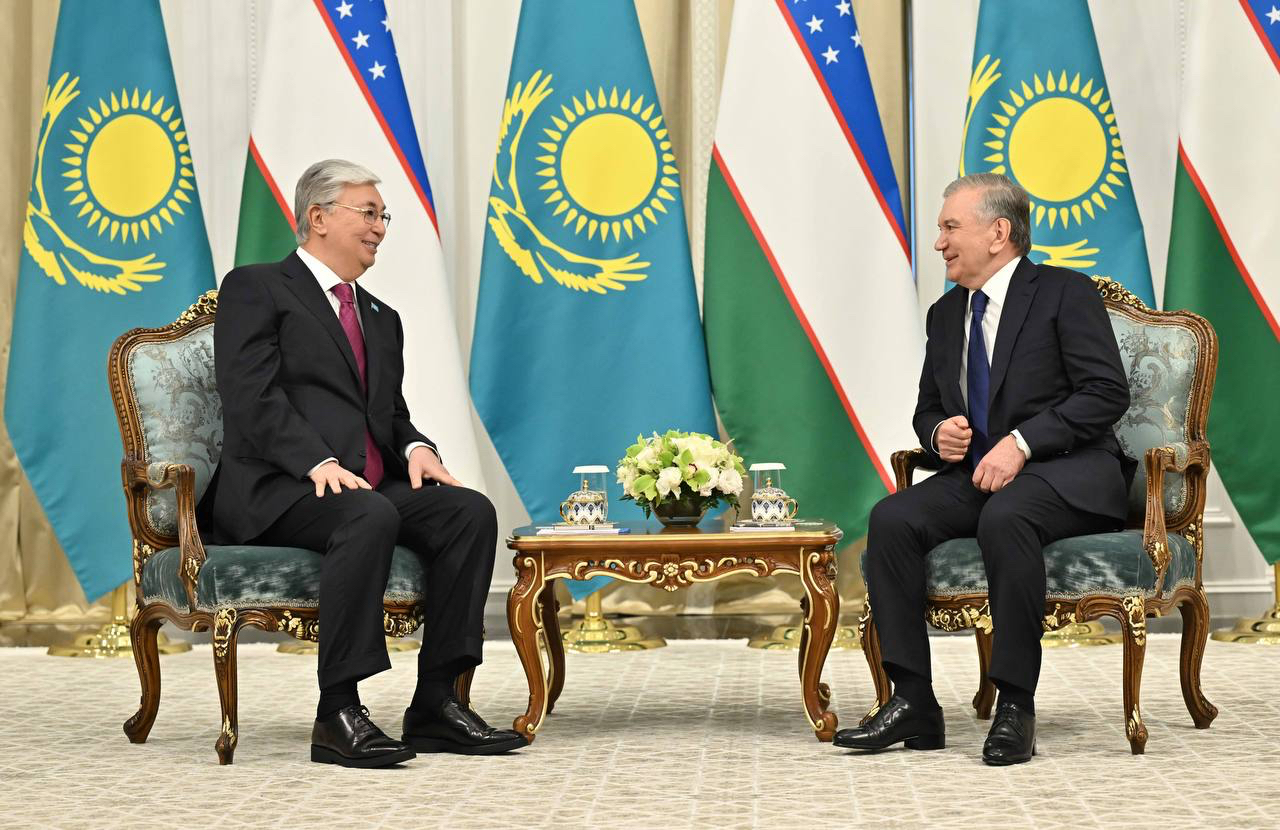BAKU, Azerbaijan, November 14. President of Kazakhstan Kassym-Jomart Tokayev’s visit to Uzbekistan from November 14 through 16 coincides with the 7th Consultative Meeting of the Central Asian heads of state. This convergence makes Tashkent a key platform for discussing the future development of regional cooperation. For Kazakhstan, the trip presents an opportunity to outline its approaches to key regional development areas and strengthen mechanisms for cooperation with Uzbekistan.
The agenda for the visit encompasses high-level discussions and participation in the Supreme Intergovernmental Council meeting. The talks are expected to center on areas of industrial collaboration, trade, water and energy resources, and transport logistics. Key anticipated outcomes include the establishment of an International Center for Industrial Cooperation and the signing of multiple agreements aimed at deepening the strategic partnership between the two nations.
The growing interconnectedness of the region makes this visit particularly relevant. Kazakhstan, the largest economy in Central Asia, serves as a key transport and transit hub. Kazakhstan’s territory provides crucial routes that enable Uzbekistan to access markets in Russia, Europe, and the Caspian Sea.
Energy cooperation between Astana and Tashkent holds a special place in bilateral relations. According to Kazakhstan’s Ministry of Energy, in the first seven months of 2025, the transit of Kazakh gas through Uzbekistan amounted to 921.7 million cubic meters, and it is expected to rise to 11 billion cubic meters per year starting in 2026.
At the same time, both countries are working within the framework of the Unified Energy System of Central Asia and are advancing the Green Energy Corridor project with Azerbaijan’s involvement. During COP29 in Baku in November 2024, Tokayev noted that the unification of energy systems opens new opportunities for the export of clean electricity and enhances Kazakhstan’s potential as a transit hub.
Kazakhstan and Uzbekistan are also jointly implementing the construction of the 1,860 MW Kambarata-1 hydroelectric power station on the Naryn River in Kyrgyzstan. In January 2023, the energy ministers of the three countries signed a “roadmap” for the construction of the hydroelectric plant. The electricity produced at the station, exceeding Kyrgyzstan's domestic needs, will be purchased by Uzbekistan and Kazakhstan.
The intensity of bilateral contacts underscores the resilience of their cooperation. Along with official negotiations, regular working meetings play a crucial role. On March 29, 2025, discussions in Almaty allowed both sides to address strategic partnership directions, from transport and energy to water resources and investment. At that time, Tokayev emphasized that the allied nature of Kazakhstan-Uzbekistan relations directly impacts regional stability.
Economic ties between the two countries continue to grow stronger. According to the National Statistical Committee of Uzbekistan, in the period from January to August 2025, trade turnover reached $3 billion, reflecting a 3.5 percent increase compared to the previous year.
Kazakhstan, with its developed logistics infrastructure and the largest railway network in the region, offers Uzbekistan not only access to the sea but also opportunities for industrial cooperation. Joint production of household appliances, machine engineering products, and agribusiness goods is creating new value chains.
Significant progress is being made in the transport sector, with ongoing developments in key infrastructure projects. The construction of the Darbaza-Maktaaral railway line in the Turkestan region, launched under the directive of President Tokayev, continues to advance. This new rail link is set to enhance Kazakhstan’s export capacity and bolster transportation connectivity with Uzbekistan.
Additionally, efforts to expand air connectivity between the two nations are underway. Following agreements made in August 2025, the frequency of flights on the Almaty-Tashkent and Astana-Tashkent routes has increased, with the two routes now operating up to 42 times per week, bringing the total air travel capacity between the two countries to 238 flights per week.
Central Asia is striving to strengthen its independence. Following the adoption of the “Central Asia-2040” concept, the countries of the region aim to create long-term cooperation mechanisms, including the development of the Middle Corridor and joint energy projects. In today’s changing international environment, such initiatives are especially important.
As Kazakhstan prepares for the upcoming Consultative Meeting of Central Asian heads of state in Tashkent, it positions itself as a proactive participant, eager to foster open dialogue and champion initiatives that promote the region's sustainable development. For Kazakhstan, enhancing energy and transport connectivity remains a top priority. President Tokayev's visit underscores the nation's dedication to advancing mutually beneficial cooperation, a cornerstone for securing the long-term stability and prosperity of Central Asia







